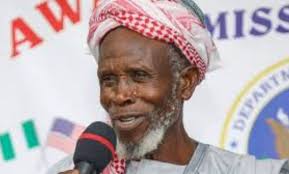
The DA says it needs the support of the ANC to replace BBBEE and introduce a new inclusive bill that will reduce corruption and grow the economy.
The DA’s head of policy, Mathew Cuthbert, said the Economic Inclusion for All Bill aims to replace years of ineffective ANC empowerment policies that have left the majority of South Africans unemployed.
Cuthbert and other senior DA leaders announced the bill in Johannesburg on Monday.
He said the problem with BBBEE is that it has created a feeding trough for the ANC’s cadres who have benefited at the expense of the poor and vulnerable.
“According to Prof. William Gumede of the Wits School of Governance, conservatively, R1 trillion has been moved between under 100 people since 1994.
“The same people have been empowered and re-empowered over and over. He also stated that South Africa’s BEE model has created a model of corruption because people set up companies just to get a contract,” he said.
How this Bill works
Cuthbert said the DA’s proposed Economic Inclusion for All Bill seeks to amend the Public Procurement Amendment Act of 2024, to repeal all race-based preferential procurement provisions and replace them with a real empowerment system that targets poverty as the proxy for disadvantage instead of race.
“This Bill aims to create a public procurement system that encourages genuine economic empowerment by offering incentives for tangible developmental outcomes such as job creation, poverty reduction, skills enhancement, and environmentally sustainable practices.
“We aim to reform South Africa’s public procurement framework by aligning it with section 217 of the Constitution, which governs public procurement, requiring that all state organs must contract for goods and services in a system that is fair, equitable, transparent, competitive, and cost-effective,” he said.
Cuthbert said this alternative model aligns with the 17 United Nations (UN) Sustainable Development Goals (SDGs), which serve as a universal call to action for government, business, and civil society to end poverty, address inequality and create a path towards sustainable economic growth by 2030.
“The Bill removes provisions for set-asides, prequalification criteria, subcontracting conditions, and local content designations, replacing these measures with an outcomes-driven system centred on inclusive development and value-for-money procurement,” he said.
He said the transitional measures in the Bill include the winding down of the BEE Commission over 12 months and the systematic removal of references to BEE across legislation.
“To give effect to this change, the Bill empowers the Minister of Trade, Industry and Competition to develop a simplified preference points system based on a supplier’s demonstrated contributions to inclusive development and social impact,” he said.
The DA’s alternative scorecard comprises three components. Firstly: Value for Money, secondly: Economic Inclusion, and thirdly: Disqualification Criteria.
“The Value for Money component assesses the cost-effectiveness, technical capacity, and reliability of bidders, which accounts for 80 percent.
“The Economic Inclusion component assesses bidders’ demonstrable contributions to the SDGs across five different categories, such as Human Development, Economic Empowerment, Environmental Sustainability, Inclusive Communities and Governance, and a Mixed Impact Option, which accounts for 20 percent.”
The DA also proposes a Disqualification Criteria to exclude bidders if there is a proven record of fraud, corruption, or misrepresentation.
“Instead of granting nominal ownership of foreign and local businesses to ANC cadres, the DA’s alternative aims to empower all South Africans who lack access to economic opportunities by focusing on Human Development activities such as feeding schemes, scholarships, and early childhood development.
“Economic Empowerment activities, including local hiring, small business development, and women’s empowerment initiatives,” he said.
The difference between the ANC and the DA’s policy
Cuthbert said while the ANC’s policy is only for cadres, the DA’s policy demands no political connections.
“Under the ANC, race is the sole criterion, whereas the DA emphasises needs-based empowerment. The ANC encourages a fronting culture, while the DA promotes social impact and value-for-money in procurement.
“The ANC continues to exclude small businesses, whereas the DA considers small businesses vital partners in the fight against unemployment. While the ANC is preoccupied with increasing red tape and compliance, the DA seeks to reduce red tape, boost social investment, and foster economic growth,” he said.
GNU
Cuthbert said the party is using its position in the government of national unity (GNU) to influence policies that will improve the lives of all South Africans.
“The DA may be in coalition with the ANC in government, but that doesn’t mean we need to agree with them all the time.
“We are in the GNU to represent the interests of all South Africans, and we will not relent. As a party that cares deeply for our country and its people, it angers us to see how the ANC has used state resources to line its pockets instead of delivering much-needed services and upliftment to the people,” he said.
Is this an apartheid Bill?
Cuthbert denied that this Bill would ignore the imbalances that had been created by apartheid policies before 1994.
“There is some realisation, even within the ANC itself, that the way in which transformation policies have been implemented within this over the last 20 or so years has failed to attract the kind of investment we need into the key sectors to be able to grow the economy and create jobs.
“This is not a case of us trying to repeat apartheid or trying to do what was done under the apartheid government led by the National Party (NP) and the Broederbond.
“Fundamentally, we are talking about an inclusive South Africa, an inclusive South Africa where, regardless of the circumstances of your birth, you have the same level of opportunity,” he said.
ALSO READ: ‘Not my close relative’: Ramaphosa distances himself from corruption-linked Maumela
Engagements with the ANC
Cuthbert said the DA looks forward to having talks with the ANC on this new bill.
“The ANC is well versed that this is coming. We have not had a one-to-one engagement; the notice of intention for the bill to be released was only on Friday, and it will now go through a full parliamentary process.
“Fundamentally, this is something that we are going to raise within Cabinet and within the GNU every time we start talking about transformation and economic empowerment policies.
“It will be interesting to see whether we get a tweet or not from the secretary-general of the ANC … it seems that they are the only people out there willing to defend their policies,” he said.
Economist weighs in
In a recent interview with The Citizen, Economist Makwe Masilela said BBBEE was created with good intentions of levelling the scales of inequality.
But he said there is evidence that this policy has also been abused to benefit a few.
“But that does not mean it must be scrapped, but instead we need to make sure that the implementation thereof gets to be done in such a way that the policy meets the intended purpose.
“I guess just like any other policy, if not implemented correctly or allowed to be abused, then it’s expected that people will start to be against it,” he said.
ANC’s 10-point plan to grow the economy
Earlier this month, the ANC’s National Executive Committee (NEC) had a three-day meeting, which produced a 10-point plan to grow the economy and create employment.
Their president, Cyril Ramaphosa, said this plan will also be introduced to the Cabinet. At the time, the DA welcomed some of the reforms that Ramaphosa and his party came up with.
However, they rejected the party’s retention of the BBBEE policy.
NOW READ: Helen Zille to run for Joburg mayor as DA vows to ‘wrestle city back’



